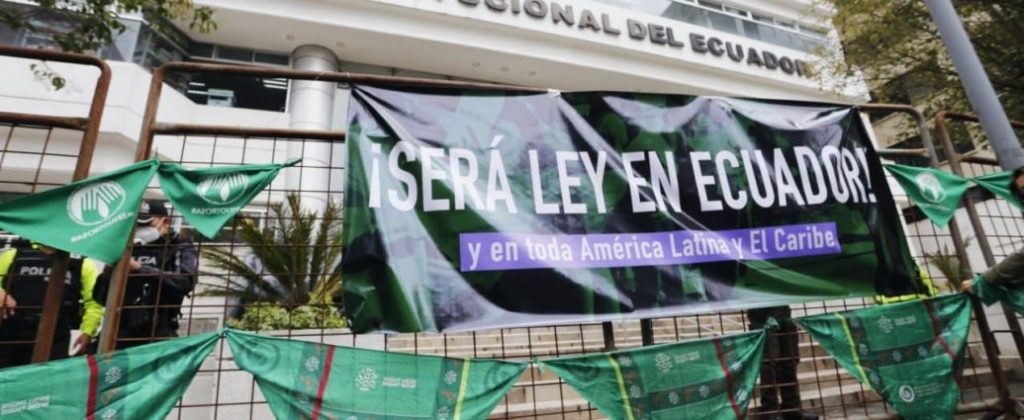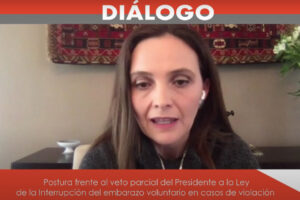Dignidad y derecho

Since April 2022, Ecuador, a small Latin American State, joined the league of the countries that allow abortion in rape cases. The process started with a constitutional claim in August 2019 and ended up with the publication “by the ministry of law” of the Law to Regulate The Voluntary Interruption of Pregnancy in Rape Cases. Let’s track the most critical points of this legislative evolution.
Ecuador has a centralized democratic, constitutional State of rights and justice, according to the current Constitution from 2008, also called the “Montecristi Constitution”. Under this legal frame, the current Penal Code (“Código Orgánico Integral Penal) penalized abortion with up to 3 years of jail for medics and up to 2 years for women who abort. This legal penalty had, until April 2021, only two exceptions: women with disabilities who become pregnant due to rape and in cases of risk for the women’s health, including mental and physical health.
Several attempts to reform the Penal Code and enhance the abortion exceptions, especially through the National Assembly took place. The last one, in 2019, only needed 70 out of 137 votes from legislators to pass the reforms that would have allowed abortion in rape cases for every woman. The proposal was denied because it only raised 65 votes, 5 less than the required threshold to pass the reforms.
Although the profound social controversy about abortion in the country and the diversity of opinions among politicians on the topic, in April 2019 the Constitutional Court of Ecuador issued a decision that decriminalized abortion in rape cases for every woman. Therefore, under the basis of health rights, to reproductive autonomy and to personality development. Abortion in Ecuador is now constitutional also in rape cases.
This Court’s irrevocable and of the last instance decision, raised the abortion debate in the country to the roof. Especially, because it allowed abortions in rape cases since the publication of the decision, but did not give specific parameters regarding weeks of pregnancy or requirements to access to abortion. These elements, said the Court, was for the National Assembly to debate and approve through laws. But the Court made it clear that punishing abortion in rape cases is no longer constitutional.
According to some jurists and academics this decision lacks a correct understanding of International Human Rights Law and basic principles of Constitutional interpretation. No international treaty recognizes a right to abort, nor under other rights such as the health right. Even though the fact that some UN committees encouraged Ecuador to decriminalize abortion, these recommendations have no mandatory power.
Another complex element of this decision is that the Ecuadorian Constitution recognizes the constitutional protection of the unborn “since conception”, and the Organic Code for Children and Teens recognizes his/her status as a human person. The Court on its decision did not analyze these elements deeply and refused to “pronounce itself about the constitutional status of abortion”, not giving abortion status as a human right, but a procedure the State has to provide.
In the following articles, I will explain the steps followed from the Constitutional Court’s decision to the present Abortion Law in Ecuador.
Publicado originalmente en International Youth Coalition:
https://iycoalition.org/abortion-decriminalization-in-ecuador-a-constitutional-journey-part-i/







